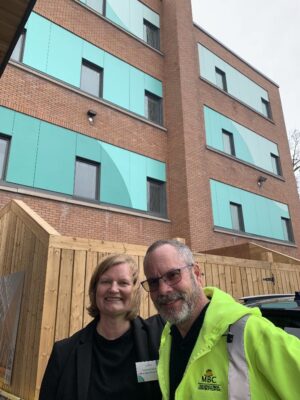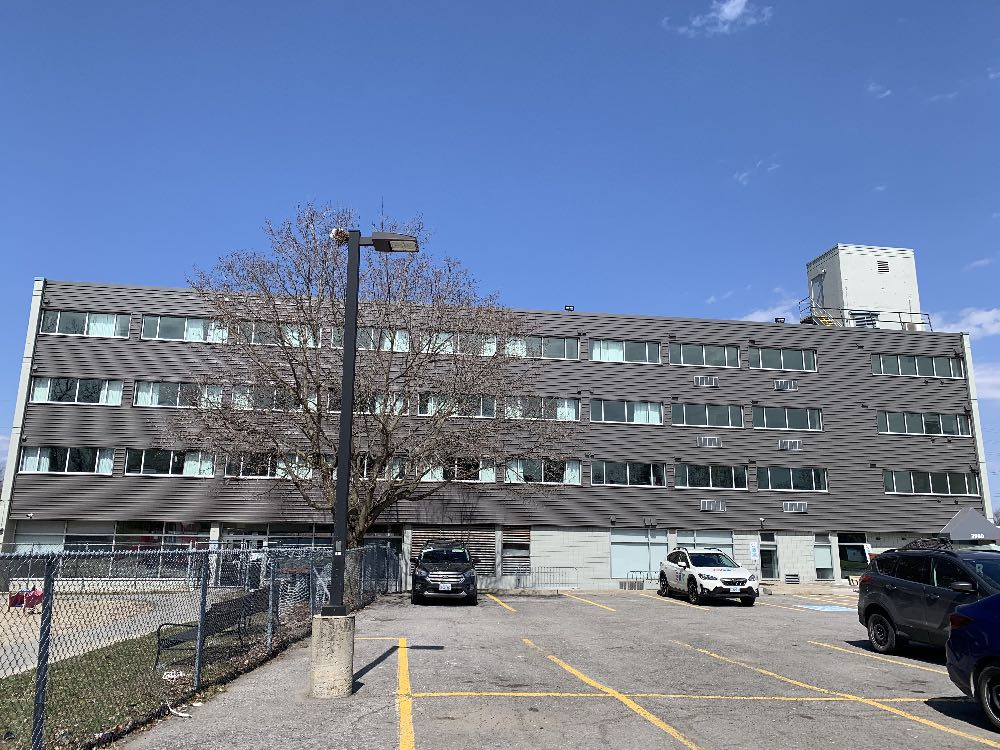Bishop Shane Parker has asked the federal government to do more to combat homelessness and the shortage of affordable housing.
In a letter to Housing Minister Sean Fraser, the bishop commends the government for measures it has already taken but says it is critical to better target individuals and families in greatest need.
He urges the government to implement all 10 recommendations of the National Housing Accord, which has been endorsed by the Diocese’s Homelessness and Affordable Housing Working Group and 75 other organizations. These include Cahdco, the Ottawa non-profit developer, with which the Diocese has worked closely.
The Accord was drawn up last year by a group of housing experts from the private and non-profit sectors, including investors, developers, owners and policy specialists. The organizers have established a website— www.nationalhousingaccord.ca —as a means of expanding support.
Replying for the minister, Kris Johnson, director general of the homelessness policy directorate, praised the work of the Diocese and said the government is committed to working with stakeholders to support the most vulnerable.
The bishop’s letter links to a report that shows how the Accord’s recommendations could benefit projects supported by the Diocese that are in various stages of development.
Hollyer House at Christ Church Bells Corners, scheduled to open officially on April 19, would have benefitted by a saving of $525,000 if the GST/HST on purpose-built rental housing had been eliminated as recommended by the Accord.
The federal government did fully remove the Goods and Services Tax (GST), and the Ontario government eliminated the provincial portion of the Harmonized Sales Tax (HST), but both came too late to benefit Hollyer House.
Hollyer’s fundraising campaign to raise $1.6 million is close to the $1.2 million mark, a shortfall that would have been more than covered if the GST/HST elimination had been in place.
Cornerstone Housing for Women’s residence at 44 Eccles Street, which opened on April 17, is described as a prime example of a project that could have benefitted from a property acquisition program as proposed in the Accord.

The building, converted from previous office and school use into 44 affordable studio apartments, received federal funding from the Rapid Housing Initiative. But the Accord points out that Canada Mortgage and Housing Corporation (CMHC) promotes new construction rather than acquisition.
The extension to add 38 units at Ellwood House, affiliated with St Thomas the Apostle, could benefit immediately from the Accord’s recommendation for increased funding of deeply affordable and seniors housing. The Ellwood project is progressing well, but it will need capital funding of $12.5 million to become viable.
Stay informed and never miss a story – subscribe to the ADO online newspaper Perspective today.
Subscribe here.
Author
-

David Humphreys is a member of the diocesan Homelessness and Affordable Housing Working Group. A retired journalist and former Globe and Mail bureau chief, he is a regular contributor to Crosstalk.



“Grow old along with me! The best is yet to be.”